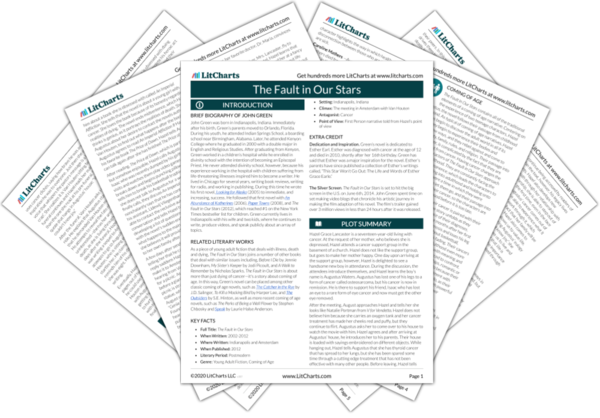They watch
V for Vendetta, which
Hazel doesn't really like because it is a “boy movie”, but agrees is great to make
Augustus happy.
Augustus’ mother takes a seat beside her before she leaves and grabs a pillow with the saying, “without pain, how could we know joy?” She tells Hazel she loves the saying. Internally, Hazel believes it is an old argument for thinking about suffering that could easily be dismantled, but she replies to Augustus’ mother by saying it is a lovely thought.
